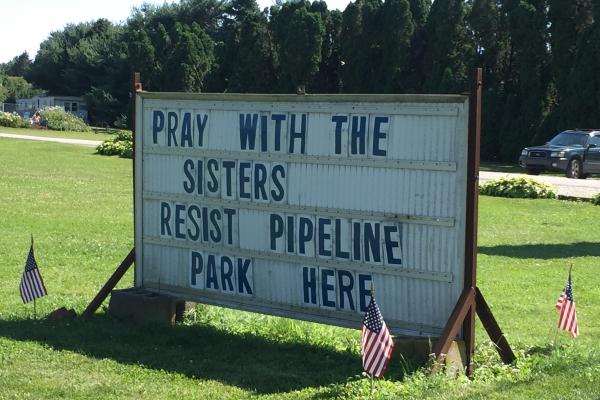Jul 11, 2017
More than 500 people gathered in a hot and dusty Pennsylvania cornfield yesterday afternoon to join the Catholic sisters of the Adorers of the Blood of Christ for the dedication of a new outdoor chapel, built on land about to be seized from them by a corporate developer planning to build a natural gas pipeline.
Read the Full Article

Already a subscriber? Login
